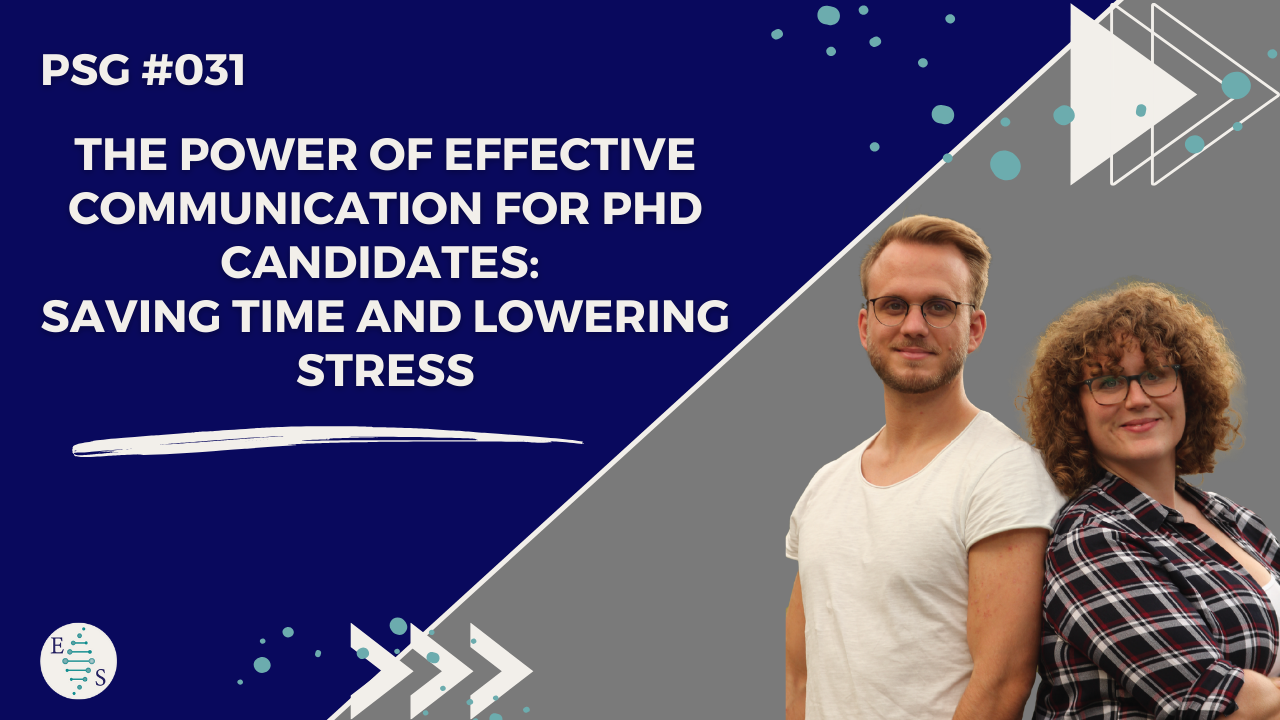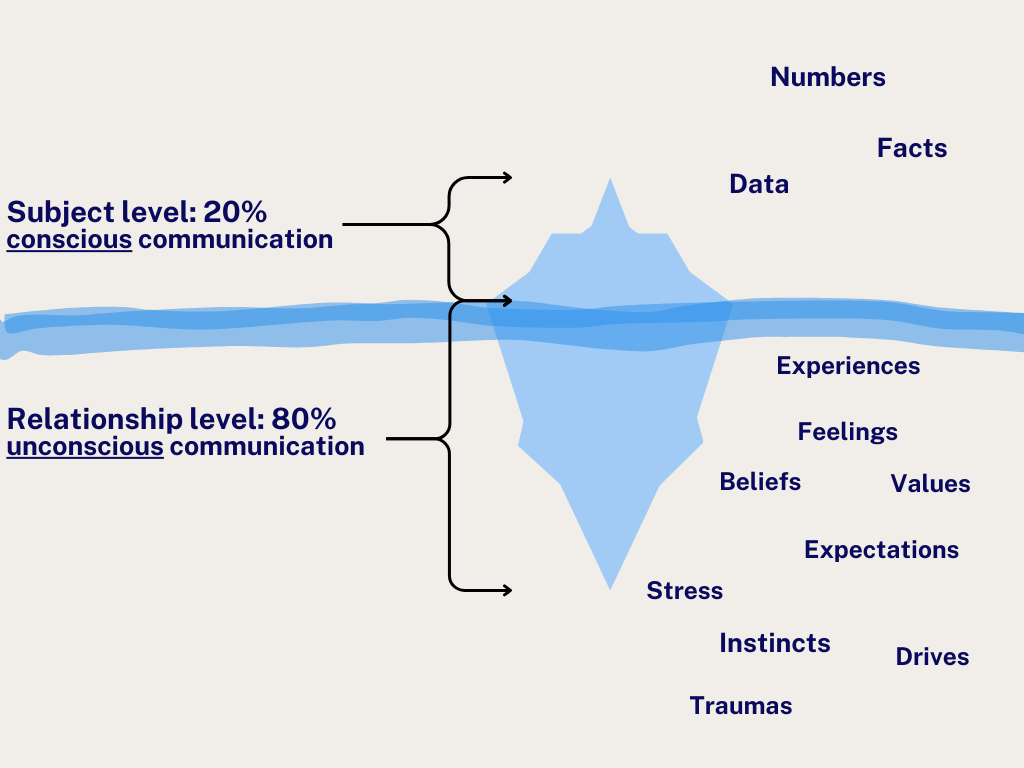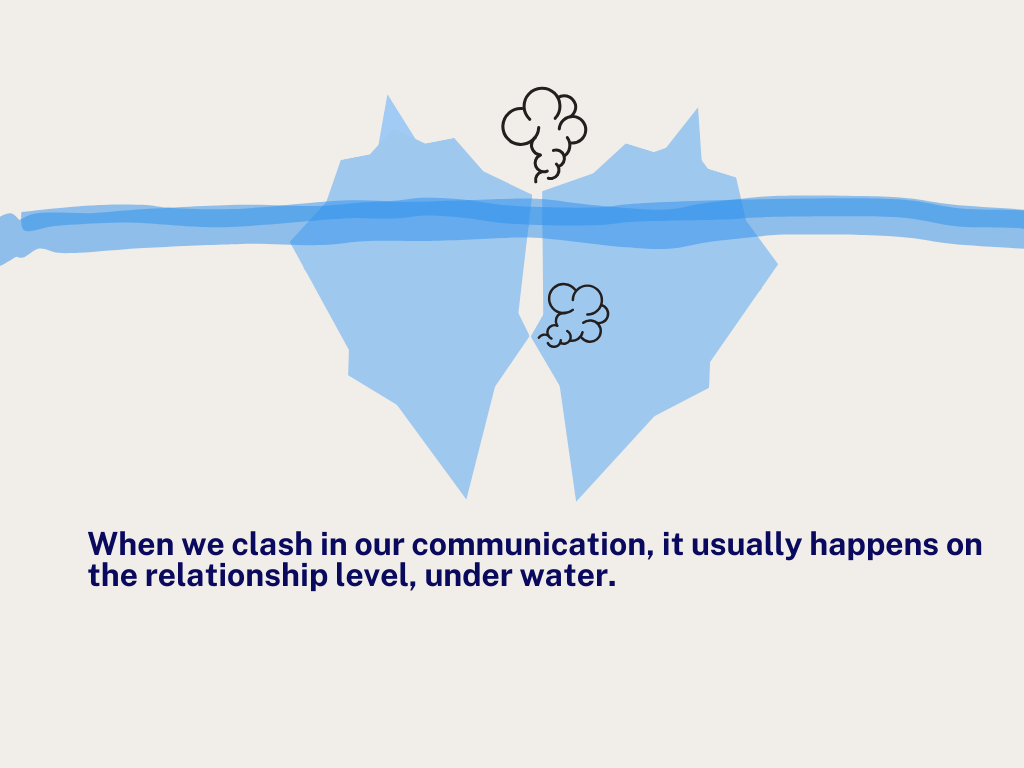
PSG #031: The Power of Effective Communication for PhD candidates: Saving Time and Lowering Stress
Nov 27, 2023Are you tired of wasting time on misunderstandings and dealing with unnecessary stress?
Well, let me tell you, the secret to a smoother life is effective communication! It may sound simple, but trust me, it's a game-changer. So, grab a cup of coffee and let's dive into the power of effective communication.
1. Introduction: The Power of Effective Communication
Communication is a powerful tool that can save you time and lower your stress levels. It's no secret that good communication is essential in our daily lives. Whether you're at work, school, or home, effective communication can help you get what you want and need.
But what exactly is effective communication?
It's more than just speaking clearly and articulately. Effective communication involves listening, understanding, and responding appropriately. By doing so, you can avoid misunderstandings, conflicts, and wasted time.
In this blog, we'll explore the benefits of effective communication and provide you with techniques to improve your communication skills. We'll also show you how to implement effective communication into your daily life.
So, let's get started and harness the power of effective communication to save time and lower stress.
2. Benefits of Effective Communication: Saving Time and Lowering Stress
Effective communication is a powerful tool that can help save time and lower stress. When we communicate effectively, we can avoid misunderstandings and unnecessary back-and-forth conversations. This means we can get things done faster and with less hassle.
Additionally, effective communication can help us manage stress by reducing the anxiety that comes with unclear or incomplete information.
By communicating clearly and concisely, we can avoid confusion and ensure that everyone is on the same page. Whether you're at work, at home, or out with friends, effective communication can make a big difference in your life.
So why not take the time to improve your communication skills?
3. The iceberg model of communication
The iceberg model indicates that there are two levels or layers of communication:
The Subject level and the Relationship level.
The Subject level contains everything related to information, facts, data and numbers. Basically, the content you want to convey. That’s why it is also called conscious communication.
Whereas the Relationship level on the other hand is called unconscious communication. It covers everything from emotions, values, expectations, and interpretations to experiences, instincts and traumas.
In the iceberg model, it becomes clear that only 20% of the messages are visible above the water meaning they are received by the other person. The much bigger portion of the iceberg, the relationship level, is hidden underwater and thus not clearly communicated. There is only a nonverbal conversation going on.
The person you are talking to does not only hear the facts and subject level but also perceives the relationship level via gestures, facial expression, body language, posture…

So it is important to keep in mind that there is more to a conversation than just the facts.
When there are problems, misunderstandings and arguments arising, they are often because our icebergs below the surface are colliding.

4. Techniques for Improving Your Communication Skills
Let's face it, communication is a crucial part of our daily lives. Whether it's at work or in our personal relationships, effective communication can save us a lot of time and lower our stress levels. But what if you're not a natural-born communicator? Don't worry, there are techniques you can use to improve your communication skills.
- First and foremost, active listening is key. This means really paying attention to what the other person is saying and responding accordingly. To make sure you correctly understand, you can rephrase what you heard using your own words and ask if that is what the other person wanted to convey.
- Another technique is to be clear and concise in your own communication. Don't beat around the bush or use unnecessary jargon. Make sure the other person understands the information aka the subject level you want to convey.
- As learned from the iceberg model of communication remember to be aware of the relationship level in the conversation and use it in a helpful way. E.g. friendly facial expressions, and open body language.
- And lastly, practice makes perfect. Take every opportunity to communicate, even if it's just small talk with a stranger.
By implementing these techniques, you'll be well on your way to harnessing the power of effective communication and enjoying a more stress-free life.
5. Mastering the Art of Communicating Effectively with Supervisors, Colleagues, and Peers
As a PhD candidate, you'll be communicating with multiple people on a daily basis, from your supervisors to your colleagues and peers. That's why mastering the art of effective communication is essential to succeed in your academic journey. It's not just about conveying your ideas clearly and concisely, but also about listening actively and being receptive to feedback.
To communicate effectively, you need to be mindful of your tone, body language, and choice of words aka the relationship level.
Remember that your supervisors are not mind-readers, and it's your responsibility to update them regularly on your progress, challenges, and goals. As mentioned above, formulate your information clearly and concisely and in a professional way.
Similarly, your colleagues and peers can offer valuable insights and support, so it's important to foster positive relationships with them. Don't hesitate to ask for help or advice when needed, and be willing to offer your own expertise in return.
If there is an argument raised or you feel very angry, attacked, disappointed … and you feel like you cannot speak professionally and rationally with the other person at the time, walk away, take some time to cool down, and clear your head. You can always come back to the topic/issue later and address it in a calmer way. In this way, the relationship level does not cloud the information and content of the conversation
By communicating effectively with everyone involved in your PhD journey, you'll not only save time and stress less but also unlock new opportunities for learning and growth.
So, don't underestimate the power of effective communication, and start practicing it today!
6. How to Implement Effective Communication in Your Daily Life
Now that we've talked about the benefits of effective communication, let's dive into how you can implement it in your daily life.
- First, start by being mindful of your tone and body language. These nonverbal cues can often speak louder than words and can greatly impact the message you're trying to convey. As always: Awareness is key!
- Additionally, actively listening to others and asking clarifying questions can ensure that you fully understand their perspective and avoid any misunderstandings.
- Another technique is to practice empathy and put yourself in the shoes of the person you're communicating with. This can help you tailor your message to their needs and increase the chances of a successful outcome.
- Finally, don't be afraid to give and receive feedback. Constructive criticism can help improve communication and ultimately save time and lower stress in the long run.
By implementing these techniques, you'll be well on your way to harnessing the power of effective communication in your daily life.
7. Conclusion: Harness the Power of Effective Communication to Save Time and Lower Stress
We've talked about the power of effective communication and how it can save you time and lower your stress levels. We've discussed the benefits of being a great communicator and the techniques you can use to improve your skills.
But now it's time to take action and implement what you've learned. Whether it's at work, in your personal life, or even just chatting with strangers, make a conscious effort to communicate effectively. Listen actively, speak clearly, and be mindful of your body language. And don't forget to be yourself! Authenticity is key when it comes to building relationships through communication.
So go forth, and harness the power of effective communication. You'll be amazed at how much time and stress you can save yourself and those around you. Happy communicating!
See you next week!
PhD survival guide is a free newsletter. Please support by sharing with those who may benefit from this post.
If you want more help:
We're excited to share the PhD Survival System with you because we know how tough it can be to get through a PhD program. We have developed a holistic system combining all the necessary areas to obtain optimal results.
We start with the foundation, your mindset and on top of that we building two pillars with time management and stress management.
More about the PhD Survival System here:
Stay connected!
Join our newsletter to receive the latest posts!
Don't worry, your information will not be shared.
We hate SPAM. We will never sell your information, for any reason.